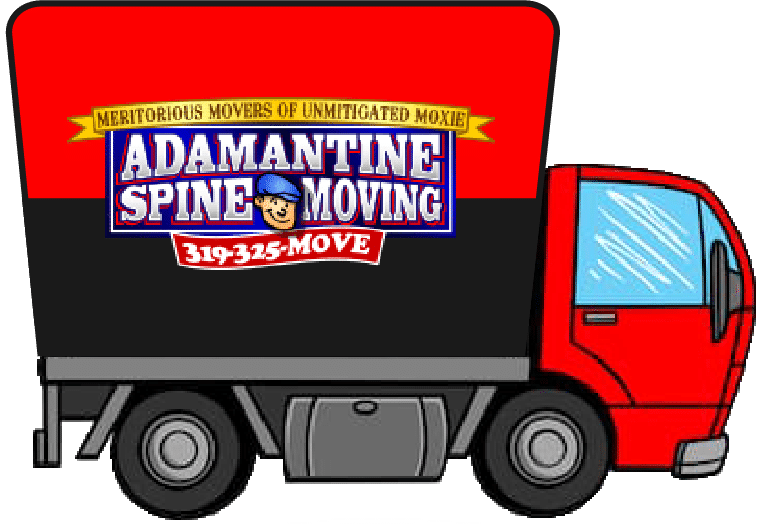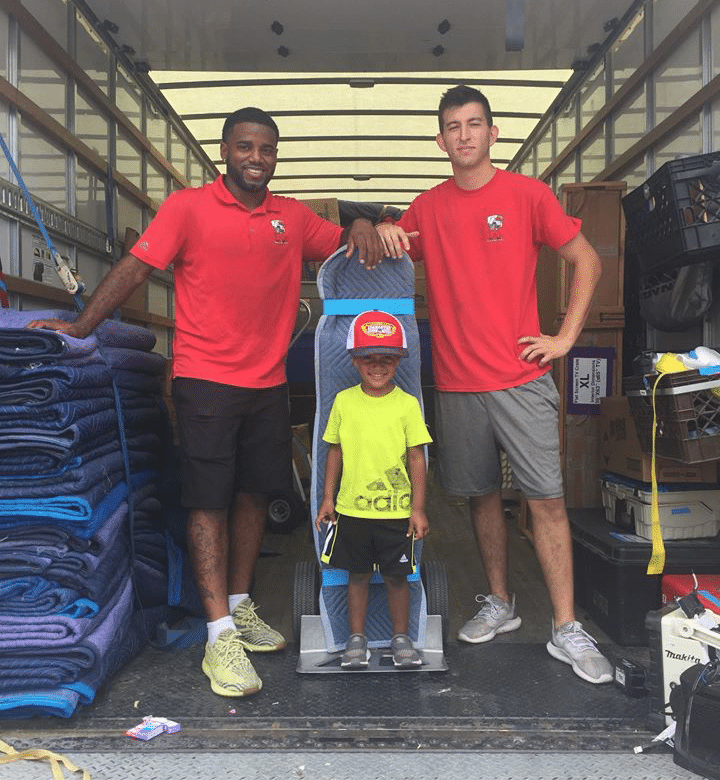How To Plan For Your Big Day
Adamantine Spine’s movers have been helping Iowans move into their new homes for almost two decades. We’re here to share some of the most helpful moving tips we’ve collected over countless jobs — and some of it might surprise you!
Spine Spotlight
It can get pretty lonely when you're driving across the country. But having a road dog in the passenger seat can help! Wink the one-eyed beagle joined crew leader Cliff Wallace as he drove down to Arizona last week. She can't lift a dresser or wrap a couch, and she sleeps most of the time, but she's pretty cute so we keep her on payroll anyway 🐶


Moving Green
Reduce, Reuse, and recycle. Good buzz words, but also a good plan to follow if your goal is to move green. Go through your home room by room and decide what to take, what to give away to family and friends, what to sell or donate, and what to recycle or send to the landfill. For packing, use new boxes made from 100% recycled fibers, or better yet, use boxes that have already been used once before. If you move with us, we’ll pick up your standard-moving-sized boxes free of charge and reuse them on another move. If you’ve moved out of town and can’t return your boxes to us, or your boxes and packing paper can’t be reused, be sure to recycle. Also, consider using environmentally friendly cleaning products for move-out and move-in cleaning chores. And of course, consider hiring a mover that uses 100% biodiesel made from waste vegetable oil.
Safe Moving Tips
The two biggest safety risks during a move are the twenty-ton moving truck we operate and heavy household possessions, like armoires, pianos, and treadmills (but only when we’re carrying them).
Dangers For Kids & Pets
It’s natural for children and pets to want to be at the center of the action in a household. Unfortunately, though, that’s a particularly dangerous place for them to be on moving day. We suggest asking a relative, friend, or sitter to care for your children and pets off-site on moving day. If that’s not possible, we recommend close on-site adult supervision and care. If a child by chance wanders onto the truck, your crew should stop work immediately and attend only to that child’s safety.
Severe Weather Hazards
Movers face two very different weather-related health and safety risks: dehydration from extreme heat in summer, and driving hazards (as well as trip and fall hazards) from snowy and icy conditions in winter. We come prepared with our own water in summer, but on especially hot days we each need to drink as much as 2 gallons of water (yup, we sweat a ton). In winter, you can help keep us safe by having your driveway, walkways, and steps cleared of snow and ice. Thanks in advance for caring about our safety!
Hazardous Material
Households often contain caustic, flammable, explosive, or otherwise hazardous materials that pose a threat to the safety of people, animals, personal property, and the environment if they’re not handled and disposed of properly. Household movers, including Spine Moving, are prohibited by law from transporting such items.

View Our Moving Checklist!
Our job is to make your move worry-free so we made a checklist to help you before, during and after your move
Moving With Children
Moving can be especially challenging for kids as they aren’t in control of family decisions and have less developed coping skills. Tell your children about the move as soon as possible. Much of the stress associated with moving relates to dealing with the unknown. Moves involve change and loss, so try to maintain as many regular family routines and rituals as possible. Encourage your children to help with packing. Then spend time with your kids after the move to help them get acquainted with their new home, school, and neighborhood.

Helpful Packing Tips
Packing an entire house can be overwhelming. If you are packing household items yourself, keep these tips in mind.
Pack room-by-room
Packing room-by-room helps you keep similar items together through the process. Be sure to check those easy-to-forget places, like under the bed, at the back of topmost built-ins and the back corners of closets.
Heavy items go in small boxes
Heaver items, like books and gold bars, should be packed in smaller boxes while lighter items should go in larger boxes. As a general rule, small boxes are for books, papers, and canned goods, medium boxes are for kitchen appliances and pots and pans, and large and extra large boxes are for plastics, clothing, and bedding.
Pack boxes firmly
Pack boxes firmly from bottom to the very, very top, with no empty space at all. This helps prevent the box from crushing under weight when other boxes are stacked on top of it. Key to keeping your items safe and sound!
Pad your fragile items
Use towels, linens, curtains and other soft items as padding around your fragile items to prevent breakage. When you run out of "locally-sourced" padding, use packing paper.
Leave clothing/light items inside furniture
Leaving clothes, blankets, and comforters inside dressers and chests help to save packing labor.
Heavy items go at the bottom of the box
Place heavier items in the bottom of the box and lighter items on top. This helps weight the boxes properly and provides better protection for your items.
Leave hanging clothes hanging
No need to pack your hanging clothes, leave them hanging and pack in wardrobe boxes. If there's space on the bottom, use that fort shoes or comforters.
Reinforce your boxes
Reinforce the bottom and top of each box with at least three strips of packing tape along the middle seams. If you want to be extra safe, tape the seams running along the edges of the box as well.

